If you’re a parent or soon-to-be parent seeking to develop strong, nurturing connections with your child, you’ve probably heard about attachment parenting.
A quick Google search will reveal countless articles and resources on this topic which can be overwhelming to say the least! But if you’re looking for the best attachment parenting books, look no further!
Our philosophy has always been to understand a subject well and then add some complimentary aspects from other sources. With this in mind, we have gathered tried and trusted attachment parenting books and some excellent books covering subjects close to the heart of attachment parenting that you might not have considered.
We’ve compiled a list of top books to guide your parenting journey and provide practical tools and strategies for developing secure emotional bonds with your little ones.
Attachment Parenting: Instinctive Care for Your Baby and Young Child by Katie Allison Granju and Betsy Kennedy
Attachment Parenting, written by Katie Allison Granju and Betsy Kennedy, offers a comprehensive guide to attachment theory. It provides practical advice and support for parents seeking to build strong emotional bonds with their children.
The book emphasizes the importance of consistently meeting a child’s physical and emotional needs to create a secure attachment. Granju and Kennedy offer techniques for breastfeeding, babywearing, co-sleeping, and positive discipline to support attachment parenting.
This book encourages parents to trust their instincts and develop a nurturing relationship with their child, making it one of the best books on attachment on the market.
Dive deeper into this parenting book with our book review of Attachment Parenting.
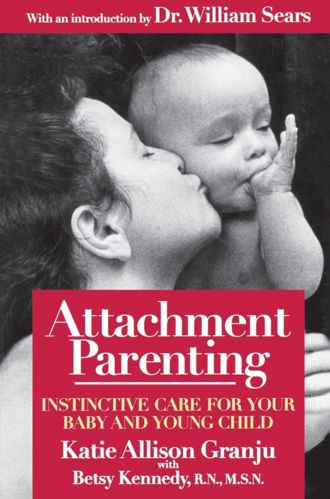
The Gentle Parenting Book: How to Raise Calmer, Happier Children from Birth to Seven by Sarah Ockwell-Smith
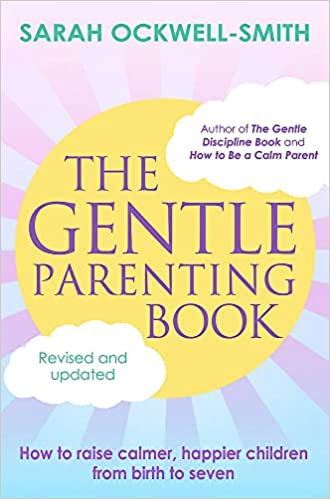
The Gentle Parenting Book is an evidence-based guide for parents, brimming with gentle parenting principles and practical advice for implementing them. Sarah Ockwell-Smith emphasizes the importance of understanding and empathizing with a child’s emotions to create a secure attachment and foster emotional intelligence.
Throughout the book, using gentle parenting principles, you’ll find techniques for dealing with tantrums, sleep problems, and other common parenting challenges.
The Gentle Parenting Book helps parents create a loving and supportive environment for their child’s optimal growth and development. You’ll be a pro at handling even the most challenging situations while keeping your cool!
To learn more, read our in-depth review of The Gentle Parenting Book.
Peaceful Parent, Happy Kids: How to Stop Yelling and Start Connecting by Laura Markham
This book by Laura Markham is about creating strong emotional connections with your child through mindfulness and effective communication techniques. Peaceful Parent, Happy Kids teaches you the significance of regulating your own emotions and fostering a calm, empathetic parenting approach.
As you delve into the pages of this gem, you’ll learn strategies for reducing yelling and power struggles while increasing cooperation and trust between parent and child. Who wouldn’t want that?
The book promotes stronger parent-child relationships and emotional well-being in both parent and child. So, say goodbye to the days of yelling matches and embrace a more harmonious household.
Explore our comprehensive review of Peaceful Parent, Happy Kids for a deeper understanding.
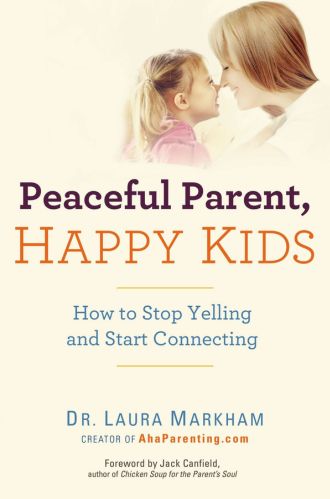
No-Drama Discipline: The Whole-Brain Way to Calm the Chaos and Nurture Your Child’s Developing Mind by Daniel J. Siegel and Tina Payne Bryson
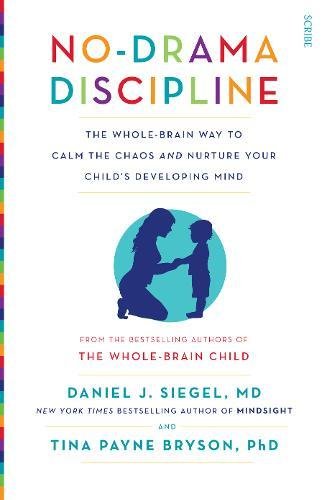
If you’re looking for a book that combines neuroscience and psychology to provide a new understanding of discipline, then look no further! No-Drama Discipline does just that, showing you how discipline impacts a child’s brain development.
The key takeaway from this book is the importance of using discipline to teach life lessons and foster problem-solving skills, rather than simply punishing undesirable behavior.
With techniques for implementing compassionate and effective discipline that nurtures the parent-child connection, this book equips parents with the tools needed to create a calm and nurturing environment while fostering healthy self-discipline in their child.
Take a closer look at No Drama Discipline with our comprehensive review for a deeper understanding.
The 5 Love Languages of Children: The Secret to Loving Children Effectively by Gary Chapman and Ross Campbell
You may have heard of the popular 5 Love Languages concept for adults, but did you know there’s an adaptation specifically tailored for children? Gary Chapman and Ross Campbell’s The 5 Love Languages of Children helps parents understand and meet their child’s unique emotional needs.
The key takeaway from this book is the significance of discovering and speaking your child’s love language to strengthen the parent-child bond. Chapman and Campbell provide tips for identifying your child’s love language and implementing it in daily interactions to foster connection and emotional well-being.
As you learn to speak your child’s love language, you’ll find that building deep, meaningful relationships with your children is possible and enjoyable!
Our review of The 5 Love Languages of Children provides a detailed overview of its concepts and strategies.
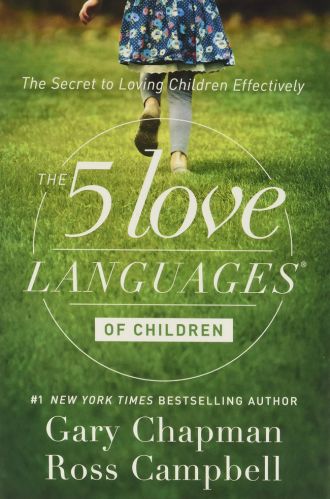
The Attachment Parenting Book: A Commonsense Guide to Understanding and Nurturing Your Baby by William and Martha Sears
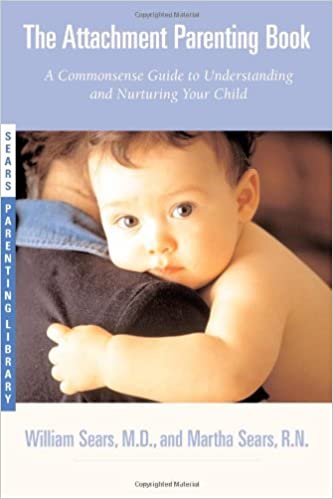
William and Martha Sears, pioneers of the attachment parenting concept, provide a comprehensive guide focusing on the essential building blocks of a secure parent-child relationship.
The Attachment Parenting Book teaches the importance of responding sensitively to a child’s needs to foster a strong emotional bond and promote healthy development.
Throughout the book, you’ll learn tips for implementing the “7 Baby B’s” of attachment parenting: birth bonding, breastfeeding, babywearing, bedding close to baby, belief in baby’s cries, balance, and boundaries.
This book provides a solid foundation for parents to understand and apply the principles of attachment theory, resulting in a strong, nurturing connection with their child.
Our review of The Attachment Parenting Book objectively assesses its strengths and weaknesses.
Hold On to Your Kids: Why Parents Need to Matter More Than Peers by Gordon Neufeld and Gabor Maté
Hold On to Your Kids is a groundbreaking book that emphasizes parents’ vital role in their children’s emotional development and the dangers of peer-oriented relationships.
The authors, Gordon Neufeld and Gabor Maté, stress the importance of maintaining a strong parent-child connection to ensure children are guided and influenced primarily by their parents, rather than their peers.
As you dive into this thought-provoking read, you’ll discover strategies for cultivating a parent-oriented relationship, including spending quality time together, maintaining open communication, and addressing the challenges of technology and social media.
By the time you finish this book, you’ll be ready to reclaim your central role in your child’s life, fostering a sense of security, self-worth, and resilience.
Take a look at our in depth book review of Hold On To Your Kids.
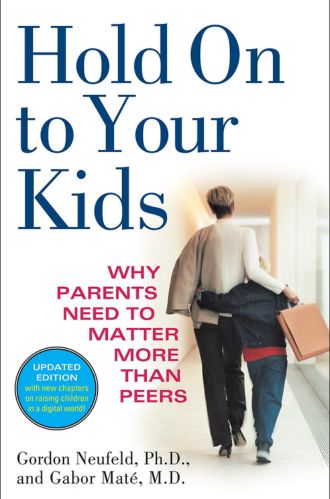
Parenting from the Inside Out: How a Deeper Self-Understanding Can Help You Raise Children Who Thrive by Daniel J. Siegel and Mary Hartzell
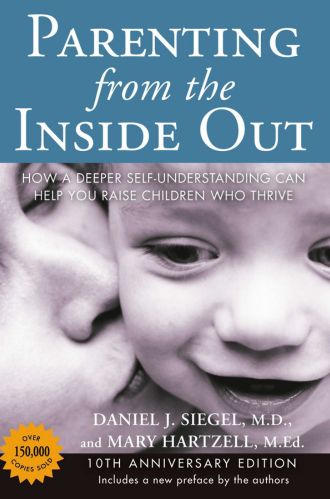
Last but certainly not least, Parenting from the Inside Out is a guide that helps parents understand their emotions and childhood experiences, enabling them to support their child’s emotional development better.
Daniel J. Siegel and Mary Hartzell emphasize the significance of self-awareness and reflection in becoming a more empathetic and effective parent.
This insightful book offers tools and exercises for exploring your emotional history and its impact on your parenting and techniques for improving communication and building stronger connections with your child.
As you journey through its pages, you’ll find yourself empowered to understand yourself and your children better, fostering healthier relationships and more emotionally secure families.
Find out more in our book review of Parenting From The Inside Out.
In Conclusion
There you have it – the best attachment parenting books to guide you toward nurturing strong, loving connections with your child.
Whether you’re new to this parenting style or a seasoned pro, these books offer invaluable insights and practical guidance to help you create a supportive environment that fosters emotional well-being and resilience in both you and your child.
So, grab a cup of tea (or coffee, if you’re like most sleep-deprived parents), snuggle up in your favorite reading nook, and dive into these excellent resources. You’ll emerge better equipped to navigate the joys and challenges of parenting with empathy, understanding, and love. Happy reading!
Frequently Asked Questions About Attachment Parenting
Below are some commonly asked questions about attachment parenting, attachment theory, and related concepts. We hope these answers provide you with a better understanding of these important topics.
Is attachment theory still valid?
Yes, attachment theory is still considered valid and relevant today. British psychologist John Bowlby proposed it in the 1950s and has since been extensively researched and refined.
The theory emphasizes the importance of a secure emotional bond between a child and their primary caregiver(s), which significantly impacts the child’s emotional, social, and cognitive development.
Many experts continue to study and support attachment theory, recognizing its importance in child development and parenting practices.
What is attachment parenting/theory?
Attachment parenting is a parenting approach based on attachment theory.
It emphasizes the importance of forming a strong emotional bond between a parent and child, which is believed to be crucial for healthy emotional, social, and cognitive development. Attachment parenting encourages consistent responsiveness to a child’s needs, physical closeness (e.g., babywearing and co-sleeping), and empathetic communication.
On the other hand, attachment theory is a psychological theory explaining how the quality of the emotional bond between a child and their primary caregiver influences their development.
The theory proposes that children who develop secure attachments with their caregivers are more likely to have positive outcomes, including emotional regulation, relationships, and mental health.
Is attachment parenting like gentle parenting?
Attachment parenting and gentle parenting share similarities, as both emphasize the importance of a strong parent-child connection, empathy, and understanding. However, there are some differences.
Attachment parenting is based on the attachment theory, which highlights the significance of a secure emotional bond between the child and the primary caregiver (usually the parent). Attachment parenting focuses on meeting the child’s emotional and physical needs, promoting close physical contact (e.g., babywearing, co-sleeping), and being responsive to the child’s cues.
On the other hand, gentle parenting is a broader philosophy that encourages parents to treat their children with respect, kindness, and empathy. It involves using positive discipline strategies, setting boundaries with love, and avoiding punitive measures such as spanking or yelling. While attachment parenting is often seen as an integral part of gentle parenting, gentle parenting encompasses a wider range of principles and practices.
In summary, both attachment parenting and gentle parenting prioritize nurturing a strong emotional connection with the child, but gentle parenting covers a broader scope of strategies and philosophies, which may include attachment parenting practices.
What is avoidant attachment?
Avoidant attachment is one of the four attachment styles identified by attachment theory. It is characterized by a pattern of emotional detachment and self-reliance in relationships.
Children with an avoidant attachment may appear independent and unresponsive to their caregiver’s attempts at closeness or comfort. This attachment style often develops when a child’s emotional needs are consistently unmet or dismissed by their caregiver(s), leading the child to suppress their need for connection and support.
How do you discipline with attachment parenting?
Discipline within attachment parenting focuses on teaching and guiding children rather than using punitive measures. The goal is to maintain the strong emotional connection between the parent and child while addressing behavioral issues. Here are some strategies for discipline within attachment parenting:
– Set clear boundaries and expectations.
– Use natural and logical consequences to help children understand the effects of their actions.
– Communicate your feelings and expectations calmly and empathetically.
– Offer choices and encourage problem-solving.
– Redirect inappropriate behavior to more acceptable alternatives.
– Validate your child’s feelings and help them express their emotions healthily.
– Maintain a consistent and predictable routine.
Using these strategies, parents can effectively address behavioral concerns while maintaining a strong, nurturing connection with their child.
Recommended book: No-Drama Discipline

